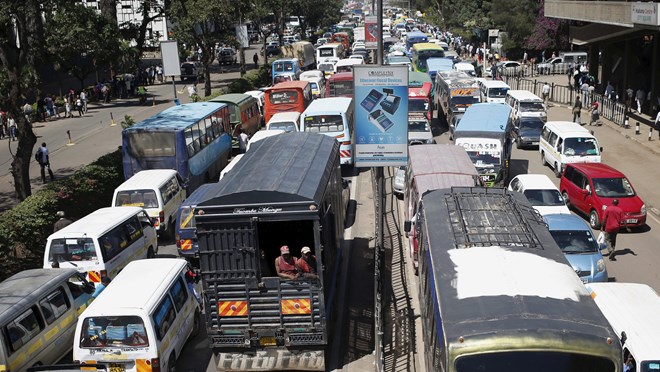Trajan
Veteran

African cities are forecast to urbanize at a rate of 3.65% annually, adding nearly 350 million new city-dwellers by 2030, according to the Brookings Institution. A billion more people are expected to be living in African cities by 2063.
Population growth is the engine of urbanization for the continent, with most of the expansion in urban populations coming from natural growth, not rural-to-urban migration, as is often assumed. Already, big cities like Lagos and Kinshasa are growing rapidly—and with that growth comes many challenges.
The difficulty is that most of Africa’s worst problems are most evident and visceral in its cities. The sheer numbers of people, the teeming unemployed, the endless traffic jams, the bad road networks, the absence of meaningful infrastructure—it goes on.
Yet, there are three recurring difficulties with Africa’s rapid urbanization, according to a World Bank report out this month. First, the cities are crowded. That might seem obvious to a visitor. But this specifically refers to how both commercial and industrial and housing infrastructure investment has been unable to keep up with the rise in urban population. In other words, congestion and the associated costs overwhelm any expected benefits of urban concentration.

Then there’s the fragmented, disconnected nature of these cities. Residents are unable to easily move from one part of the city to the other due to unreliable and inefficient transport networks made up of minibuses, matatus, and danfos which traverse these cities. The lack of good networks that can move hundreds or thousands of people at a time contributes to limiting job opportunities for firms to reap scale and agglomeration benefits.
Finally, it’s expensive to live, invest, or run a business in an African city. The World Bank says African cities are 29% more expensive than cities in countries at similar income levels. Families in African cities have to spend 55% more on housing than other regions. The high transport, housing, and food costs make labor more expensive.
Fixing these challenges will help free Africa from what World Bank calls a “low-development trap.” The aim is to achieve physical and economic density, the kind of density of opportunity, talent, and infrastructure that brings higher efficiency and economies of scale.
Formalizing land markets, clarifying property rights, and effective urban planning alongside early and coordinated infrastructure investments should be prioritized strategies in helping Africa’s cities work.
All facts.
Governance is key. Business and commerce can only do so much in improving the standard of living. Bad politics means bad standard of living. No way around it.
If infrastructure money is stolen then people will forever rely on informal solutions like riding on the back of motorcycles.
An infrastructure deficit is making life in African cities more expensive than it should be
Last edited:
 ?
? 